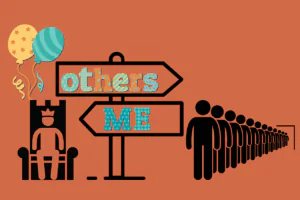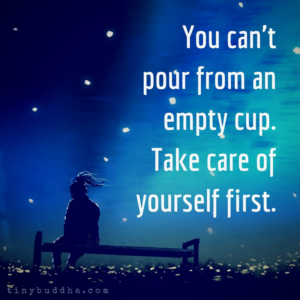It would be nice if things that happened in the past stayed in the past. However, with unresolved childhood trauma, it tends to linger into your adulthood, including into your parenting style. But it doesn’t mean you are destined to traumatize your child or become retraumatized yourself. Here’s how childhood trauma affects parenting styles and what you can do today to change it.
Unresolved Trauma
Children adjust to events occurring to them in their environment to the best of their abilities. However, their unfinished development and lack of life experience leave them more vulnerable to trauma than adults. And if the emotions generated by what feels like an attack aren’t processed at the time of the event, either with the help of a caregiver or on their own when a caregiver is lacking, the experience of the event can become a trauma that is stuck.
Related Reading: How to Release Trauma Trapped in the Body
A potentially traumatic event is something that is too much for you or your body to deal with. Traumatic events generate emotions and impulses for self-protection. And the healthy flow of processing a traumatic event, for anyone, is recognizing the violation the moment trauma occurred. Then finding safety to experience the natural emotions that follow. And eventually finding a life-giving meaning that is not a negative personal statement about ourselves. If this natural flow completes, you can let the experience go – it doesn’t linger as trauma.
However, in childhood this flow tends to be interrupted or not completed. This is for a variety of reasons. Often there is insufficient support to help the child through the experience or to make sense of the experience. Another reason is that emotions like anger and sadness are painful and uncomfortable – and are often suppressed. Suppressing them pushes trauma into the unconscious portion of your brain, becoming unresolved.
If trauma occurs in childhood and remains unresolved, it can be carried with into adulthood. Those seeking counseling are often surprised that the root of their current problems happened during childhood.
This is an important idea to be aware of because it means much of what is in your childhood, whether you are aware of it or not, may affect how you are parenting today.
Some effects of childhood trauma can be obvious. But often those effects are hidden and can sneak into your daily life. This is largely because trauma isn’t stored in your brain like regular memories, but instead in fragments, often more strongly felt in your body instead of you being cognitively aware of it.
Related Reading: Why Understanding What Trauma Does to the Brain Helps You Heal
Trauma can affect how you perceive danger and how you manage emotions and respond to stress.
If you experience any of these signs, you’re probably been living with unresolved trauma:
- Experience reoccurring flashbacks and nightmares.
- Have extreme fears that appear without reason.
- Experience repeated panic attacks.
- Have black and white thinking.
- Are hyper-vigilant, expecting threats at any moment, even if the moment wouldn’t ordinarily warrant such behavior.
- Excessively blame yourself.
- Experience depression and feelings of worthlessness.
- Suffer from addiction, eating disorders, or self-harm.
No one chooses to experience trauma. And if you have been struggling with unresolved trauma, recognize you are strong. If you feel you have unresolved trauma, take the first step, and talk to a trauma-informed counselor. They can help you work through what’s been holding you back.
Continuing to live with unresolved trauma will continue to allow it to affect you negatively – and potentially your family, as well. However, if you can allow yourself to feel the pain, complete what got interrupted, create a life-giving narrative to your experience, and work to understand what it means to you – it won’t continue to follow you throughout life. Processing what happened will help you regulate your emotions, better relate to your kids, and provide the nurturing they need.
How Childhood Trauma Affects Parenting Styles
Here are some ways childhood trauma affects parenting styles:
Avoidance
 Avoidance is one of the most prominent symptoms of unresolved trauma. You may consciously or unconsciously avoid feelings, memories, or situations that even remotely remind you of your past trauma. You may avoid these by becoming uninvolved in your child’s life or choose to drown the feelings in substance or other maladaptive behaviors.
Avoidance is one of the most prominent symptoms of unresolved trauma. You may consciously or unconsciously avoid feelings, memories, or situations that even remotely remind you of your past trauma. You may avoid these by becoming uninvolved in your child’s life or choose to drown the feelings in substance or other maladaptive behaviors.
Alternatively, you may also limit your child’s involvement in activities that you would rather avoid. This potentially limiting their experiences or involvement in something they enjoy.
Overly Sheltering Your Child
The desire to overly shelter your child from the world may stem directly from your own trauma. In essence, you are trying to protect them from what happened to you. You want your child to survive, and you will protect them.
However, over sheltering your child can limit the experiences they have in life. Or it can create a barrier from you as your child begins to explore things on their own that are “taboo” to you. Or, because your child has never had the opportunities to assess risk independently, they may grow up overly anxious and avoidant themselves.
Overly Controlling
Trauma feels like a complete loss of control in a situation that is terrifying and unsafe. Childhood trauma can affect parenting styles through overcompensation by becoming overly controlling.
Children of overly controlling parents may become rebellious or may lack the skills needed for independence. Many also develop maladaptive behaviors to manage their feelings, such as eating disorders or substance abuse.
Neglecting the Emotional Needs of Your Child
Research shows a common reaction for parents with unresolved trauma is to emotionally separate for their children, often neglecting their emotional needs. Parenting naturally creates an environment where you, and your children, are often exposed to a host of vulnerable emotions – sadness, guilt, love, anger, etc. Those with unresolved trauma often avoid those feelings.
Children with emotionally unavailable parents tend to have difficulty tolerating vulnerability or regulating their own emotions. These children tend to be needy, attention-seekers, or emotionally withdrawn.
How You Can Change Your Parenting Style
 Attachment research reveals that a strong predictor of how one will parent is directly related to how much you have made sense of your past. By feeling pain from your childhood and learning how it is still alive in your adult experiences, feelings, and relationships, you begin to process the trauma. And when you can understand your trauma and your childhood, you can better relate to your child and provide the nurture and stability they need.
Attachment research reveals that a strong predictor of how one will parent is directly related to how much you have made sense of your past. By feeling pain from your childhood and learning how it is still alive in your adult experiences, feelings, and relationships, you begin to process the trauma. And when you can understand your trauma and your childhood, you can better relate to your child and provide the nurture and stability they need.
So notice how you “instinctually” react in various situations as you parent. Are these instinctual reactions the way you actually want to parent? Or do you find yourself going again and again to one of the trauma-rooted patterns described above? If so those reactions may be rooted in unresolved trauma. The key is developing the awareness of these patterns. Then you can begin to understand why your child or certain situations seem to trigger you.
Keep Learning: Why Does Childhood Trauma Affect Adulthood
Recovering from trauma is not about blaming your parents. It’s important to recognize that they are or were humans with flaws, just like you and me. Exploring your past and understanding what you can of your childhood trauma helps you tease out your life’s positive and negative experiences and understand how you were raised. With that, you work towards emulating the positive parenting traits you have seen in others and reducing the ones you’d like to leave behind.
Often by healing your own childhood traumas, you can free yourself up to be the parent you want to be.
If you are in the Chicago area and worry that your childhood trauma may be affecting your parenting, please reach out to Life Care Wellness. We have trauma specialists in Glen Ellyn, Jefferson Park (Chicago), and Sycamore who can help you heal from trauma and feel better in control of your emotions and your parenting.
Rhonda Kelloway is a co-owner and principal therapist at Life Care Wellness, a group psychotherapy practice in Glen Ellyn, Chicago (Jefferson Park neighborhood), and Sycamore Illinois. She is a trauma specialist utilizing a Somatic Experiencing framework to utilize the body’s wisdom in healing. She also uses EMDR and a variety of traditional psychotherapy approaches in her work. In addition to being a psychotherapist, she is a trained divorce and family mediator.





